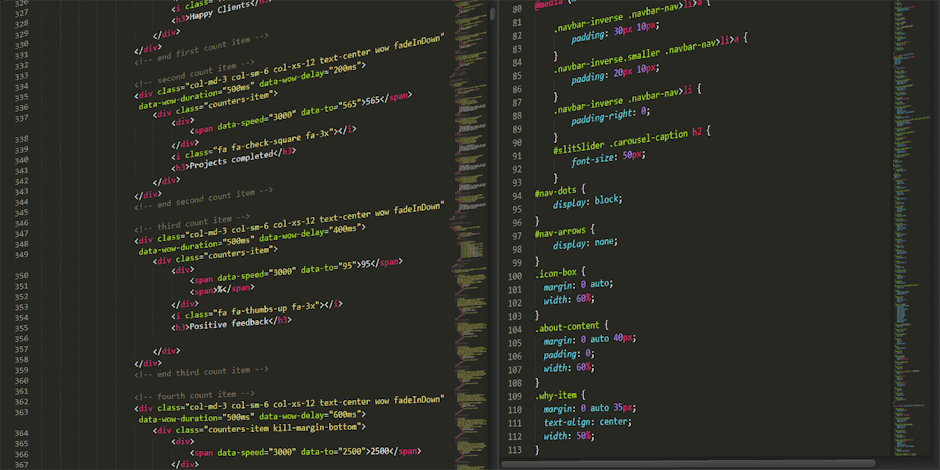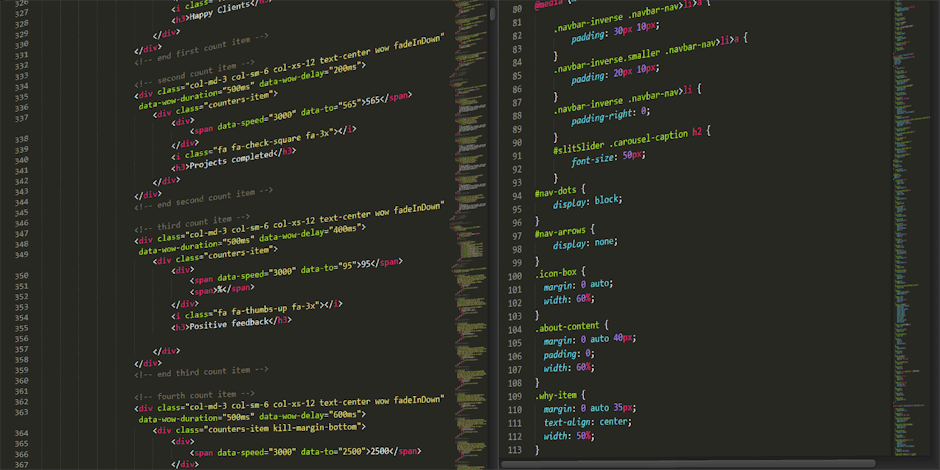Table of Contents
- Introduction
- Recognizing the Value of Negative Feedback
- Understanding the Purpose of Performance Reviews
- Embracing Constructive Criticism
- Developing a Growth Mindset
- Seeking Clarification and Feedback
- Setting Goals for Improvement
- Communicating Effectively with Supervisors
- Reflecting on Feedback and Taking Action
- Q&A
- Conclusion
“Turning criticism into growth opportunities.”
Introduction
Navigating Negative Feedback: Tips for Dealing with a Poor Performance Review
Receiving negative feedback can be challenging, especially when it comes in the form of a poor performance review. However, it is important to approach this feedback constructively in order to learn and grow from the experience. Here are some tips for navigating negative feedback and dealing with a poor performance review effectively.
Recognizing the Value of Negative Feedback
Receiving negative feedback can be a challenging experience, especially when it comes in the form of a poor performance review. However, it’s important to recognize the value that negative feedback can provide in terms of personal and professional growth. While it may be difficult to hear criticism about your work, it can ultimately help you identify areas for improvement and make necessary changes to enhance your performance.
One of the first steps in navigating negative feedback is to approach it with an open mind. Instead of becoming defensive or dismissive, try to view the feedback as an opportunity for learning and growth. Remember that receiving negative feedback is not a reflection of your worth as a person, but rather an opportunity to improve your skills and performance.
It can also be helpful to seek clarification on the feedback you receive. If you’re unsure about the specific areas in which you need to improve, don’t hesitate to ask for more information or examples from your supervisor or colleagues. Understanding the feedback in more detail can help you develop a clear plan for addressing any issues and making positive changes moving forward.
In addition, it’s important to take ownership of the feedback you receive. Instead of placing blame on others or making excuses for your performance, acknowledge your role in the situation and commit to making improvements. By taking responsibility for your actions and demonstrating a willingness to change, you can show your commitment to personal and professional growth.
Another important aspect of navigating negative feedback is to seek support from others. Whether it’s a mentor, colleague, or friend, having someone to talk to about your feedback can provide valuable perspective and guidance. They can offer advice on how to address the feedback constructively and help you develop a plan for improvement.
It’s also important to set realistic goals for yourself in response to negative feedback. Instead of trying to tackle all of your weaknesses at once, focus on one or two areas that you can work on improving. By setting achievable goals and tracking your progress, you can gradually make positive changes and demonstrate your commitment to growth and development.
Finally, it’s important to remember that receiving negative feedback is a normal part of professional growth and development. Instead of viewing it as a setback, try to see it as an opportunity to learn and improve. By approaching negative feedback with an open mind, seeking clarification, taking ownership, seeking support, setting realistic goals, and maintaining a positive attitude, you can navigate poor performance reviews with grace and professionalism.
Understanding the Purpose of Performance Reviews
Performance reviews are a common occurrence in many workplaces, providing employees with feedback on their work performance and areas for improvement. While positive feedback can be uplifting and motivating, negative feedback can be challenging to navigate. However, it is important to remember that the purpose of performance reviews is to help employees grow and develop in their roles.
One key aspect of understanding the purpose of performance reviews is recognizing that they are not meant to be personal attacks. Instead, they are intended to provide constructive criticism that can help employees improve their performance. It is important to approach negative feedback with an open mind and a willingness to learn and grow.
When receiving negative feedback, it can be helpful to remember that no one is perfect. Everyone has areas for improvement, and feedback is an opportunity to identify those areas and work on them. It is important to view negative feedback as a learning opportunity rather than a criticism of your abilities.
Another important aspect of understanding the purpose of performance reviews is recognizing that feedback is a two-way street. While it is important to listen to and accept feedback from your supervisor, it is also important to provide feedback on your own performance. This can help ensure that the feedback you receive is fair and accurate.
In addition to understanding the purpose of performance reviews, it is important to develop strategies for dealing with negative feedback. One key strategy is to remain calm and composed when receiving feedback. It can be easy to become defensive or emotional when receiving negative feedback, but it is important to stay professional and listen to what is being said.
Another strategy for dealing with negative feedback is to ask for clarification. If you are unsure about the feedback you are receiving, ask for specific examples or suggestions for improvement. This can help you better understand the feedback and develop a plan for addressing it.
It is also important to take ownership of your performance and be proactive in addressing areas for improvement. Instead of dwelling on negative feedback, focus on developing a plan for improvement and taking action to address any issues that have been identified.
Finally, it is important to seek support from others when dealing with negative feedback. Talk to a trusted colleague or mentor about the feedback you have received and ask for their advice on how to address it. Having a support system can help you navigate negative feedback and develop a plan for improvement.
In conclusion, understanding the purpose of performance reviews is essential for navigating negative feedback. By approaching feedback with an open mind, recognizing that feedback is a learning opportunity, and developing strategies for dealing with negative feedback, you can use performance reviews as a tool for growth and development in your role. Remember that no one is perfect, and feedback is an opportunity to identify areas for improvement and work on them. By taking ownership of your performance and seeking support from others, you can turn negative feedback into a positive learning experience.
Embracing Constructive Criticism

Receiving negative feedback can be a challenging experience, especially when it comes in the form of a poor performance review. However, it’s important to remember that constructive criticism is an opportunity for growth and improvement. By embracing feedback and using it as a tool for self-improvement, you can turn a negative experience into a positive one.
One of the first steps in navigating negative feedback is to approach it with an open mind. It can be easy to become defensive or dismissive when receiving criticism, but it’s important to remember that feedback is meant to help you grow and develop. By approaching feedback with a willingness to learn and improve, you can make the most of the experience.
Another important aspect of dealing with negative feedback is to separate your emotions from the feedback itself. It’s natural to feel hurt or upset when receiving criticism, but it’s important to remember that feedback is not a personal attack. Instead, try to focus on the specific areas for improvement that have been identified and use them as a roadmap for growth.
In addition, it can be helpful to seek clarification on the feedback you have received. If you are unsure about the specific areas for improvement or how to address them, don’t be afraid to ask for more information. By seeking clarification, you can gain a better understanding of the feedback and how to use it to improve your performance.
Once you have a clear understanding of the feedback you have received, it’s important to create a plan for improvement. This may involve setting specific goals, seeking out additional training or resources, or working with a mentor or coach to help you develop the skills you need. By taking proactive steps to address the feedback you have received, you can demonstrate your commitment to growth and development.
Finally, it’s important to remember that receiving negative feedback is a normal part of professional growth. No one is perfect, and everyone has areas for improvement. By embracing feedback as an opportunity for growth and development, you can turn a poor performance review into a positive learning experience.
In conclusion, navigating negative feedback can be a challenging experience, but it’s important to approach it with an open mind and a willingness to learn. By separating your emotions from the feedback, seeking clarification, creating a plan for improvement, and remembering that feedback is a normal part of professional growth, you can turn a poor performance review into a positive learning experience. Embracing constructive criticism is an essential skill for professional development, and by using feedback as a tool for growth, you can continue to improve and excel in your career.
Developing a Growth Mindset
Receiving negative feedback can be a challenging experience, especially when it comes in the form of a poor performance review. However, it is important to remember that feedback, both positive and negative, is essential for personal and professional growth. Instead of viewing a poor performance review as a setback, it can be an opportunity to learn and improve.
One of the first steps in navigating negative feedback is to approach it with a growth mindset. A growth mindset is the belief that abilities and intelligence can be developed through dedication and hard work. This mindset allows individuals to see challenges as opportunities for growth and learning, rather than as obstacles to success. By adopting a growth mindset, individuals can view negative feedback as a chance to improve and develop new skills.
When receiving a poor performance review, it is important to take a step back and reflect on the feedback. Instead of becoming defensive or dismissive, try to understand the reasons behind the feedback. Ask for specific examples or clarification if needed, and take the time to consider how you can address the areas for improvement. By approaching the feedback with an open mind, you can identify areas where you can grow and develop.
It can also be helpful to seek feedback from others, such as colleagues or mentors, to gain different perspectives on your performance. By soliciting feedback from others, you can gain valuable insights into your strengths and weaknesses, and identify areas for improvement. Additionally, receiving feedback from multiple sources can help you develop a more well-rounded understanding of your performance and areas for growth.
Once you have received and reflected on the feedback, it is important to create a plan for improvement. Set specific, achievable goals for yourself based on the feedback you received, and outline the steps you will take to reach those goals. By creating a plan for improvement, you can track your progress and hold yourself accountable for making positive changes.
It is also important to communicate with your supervisor or manager about your plan for improvement. By discussing your goals and progress with them, you can demonstrate your commitment to growth and development. Additionally, seeking feedback and guidance from your supervisor can help you stay on track and make the necessary changes to improve your performance.
Finally, it is important to remember that receiving negative feedback is a normal part of professional growth. Everyone makes mistakes and has areas for improvement, and receiving feedback is an opportunity to learn and grow. By approaching negative feedback with a growth mindset, reflecting on the feedback, seeking feedback from others, creating a plan for improvement, and communicating with your supervisor, you can navigate poor performance reviews with grace and professionalism. Remember, feedback is a gift that can help you reach your full potential.
Seeking Clarification and Feedback
Receiving negative feedback can be a challenging experience, especially when it comes in the form of a poor performance review. However, it is important to remember that feedback, even when negative, can be a valuable tool for personal and professional growth. Instead of becoming defensive or discouraged, it is essential to approach negative feedback with an open mind and a willingness to learn and improve.
One of the first steps in navigating negative feedback is seeking clarification. It is important to understand exactly what aspects of your performance are being criticized and why. This can help you identify areas for improvement and develop a plan for addressing any shortcomings. When receiving a poor performance review, it is crucial to ask for specific examples or instances where your performance fell short. This can provide you with a clearer understanding of the feedback and help you identify patterns or recurring issues.
In addition to seeking clarification, it is also important to ask for feedback on how to improve. This can involve asking your supervisor or manager for suggestions on how to address any weaknesses or areas of concern. By actively seeking feedback and guidance, you demonstrate a willingness to learn and grow, which can help you build a positive relationship with your superiors and colleagues.
When seeking feedback, it is important to approach the conversation with a positive attitude and a willingness to listen. Avoid becoming defensive or making excuses for your performance. Instead, focus on understanding the feedback and exploring ways to improve. Remember that feedback is meant to help you grow and develop, not to criticize or belittle you.
Another important aspect of navigating negative feedback is to take ownership of your performance. Instead of blaming others or external factors for your shortcomings, take responsibility for your actions and outcomes. This can help you demonstrate accountability and a commitment to personal and professional growth. By taking ownership of your performance, you show that you are willing to learn from your mistakes and make positive changes.
In addition to seeking clarification and feedback, it is also important to reflect on the feedback you receive. Take the time to consider the feedback and how it aligns with your own perceptions of your performance. Reflecting on the feedback can help you gain a deeper understanding of your strengths and weaknesses and identify areas for improvement. It can also help you develop a plan for addressing any shortcomings and setting goals for future performance.
Overall, navigating negative feedback can be a challenging but valuable experience. By seeking clarification, asking for feedback, taking ownership of your performance, and reflecting on the feedback, you can turn a poor performance review into an opportunity for growth and development. Remember that feedback is a tool for learning and improvement, and approaching it with an open mind and a positive attitude can help you succeed in your personal and professional endeavors.
Setting Goals for Improvement
Receiving negative feedback can be a challenging experience, especially when it comes in the form of a poor performance review. However, it is important to remember that feedback, even when it is negative, can be a valuable tool for personal and professional growth. Instead of viewing a poor performance review as a setback, it can be an opportunity to set goals for improvement and work towards becoming a better version of yourself.
One of the first steps in navigating negative feedback is to take a step back and reflect on the feedback that has been given. It can be easy to become defensive or dismissive when faced with criticism, but it is important to approach the feedback with an open mind. Consider the feedback objectively and try to understand the reasons behind it. Is there a pattern of behavior that needs to be addressed? Are there specific areas where improvement is needed? By taking the time to reflect on the feedback, you can begin to identify areas for growth and set goals for improvement.
Setting goals for improvement is an important part of the process of navigating negative feedback. Once you have reflected on the feedback that has been given, it is important to identify specific areas where you can make improvements. Setting clear, achievable goals can help you stay focused and motivated as you work towards becoming a better version of yourself. Whether your goals are related to improving specific skills, changing certain behaviors, or enhancing your overall performance, having a clear plan in place can help you track your progress and stay on track.
When setting goals for improvement, it is important to make sure that they are SMART goals – specific, measurable, achievable, relevant, and time-bound. Specific goals are clear and well-defined, making it easier to track progress and measure success. Measurable goals allow you to quantify your progress and determine whether you are on track to meet your objectives. Achievable goals are realistic and within reach, ensuring that you are setting yourself up for success. Relevant goals are aligned with your overall objectives and will help you make meaningful progress towards your desired outcomes. Finally, time-bound goals have a specific deadline or timeframe for completion, helping you stay focused and motivated as you work towards achieving them.
In addition to setting SMART goals for improvement, it can be helpful to seek out support and guidance from others. Whether it is a mentor, a coach, a colleague, or a friend, having someone to provide feedback, encouragement, and accountability can be invaluable as you work towards achieving your goals. By enlisting the support of others, you can gain valuable insights, perspectives, and advice that can help you navigate the challenges of receiving negative feedback and making improvements.
Navigating negative feedback can be a difficult and sometimes uncomfortable process, but it is an important part of personal and professional growth. By taking the time to reflect on the feedback that has been given, setting SMART goals for improvement, and seeking out support from others, you can turn a poor performance review into an opportunity for growth and development. Remember that feedback, even when it is negative, can be a valuable tool for learning and improvement. Embrace the feedback, set goals for improvement, and work towards becoming the best version of yourself.
Communicating Effectively with Supervisors
Receiving negative feedback can be a challenging experience, especially when it comes in the form of a poor performance review from a supervisor. However, it is important to remember that feedback, even when negative, can be a valuable tool for growth and improvement. Learning how to navigate negative feedback effectively can help you turn a poor performance review into an opportunity for personal and professional development.
One of the first steps in dealing with negative feedback is to approach it with an open mind and a willingness to learn. It can be easy to become defensive or dismissive when faced with criticism, but it is important to remember that feedback is meant to help you improve. Instead of focusing on the negative aspects of the review, try to see it as an opportunity to identify areas for growth and development.
Another important aspect of dealing with negative feedback is to take the time to reflect on the feedback and consider how you can use it to improve. This may involve seeking clarification from your supervisor on specific areas of concern or asking for examples to better understand the feedback. By taking the time to reflect on the feedback and consider how you can apply it to your work, you can demonstrate to your supervisor that you are committed to improving and growing in your role.
It is also important to communicate effectively with your supervisor when receiving negative feedback. This may involve asking for regular check-ins to discuss your progress, setting clear goals for improvement, and seeking feedback on your progress. By maintaining open lines of communication with your supervisor, you can demonstrate your commitment to improving and show that you are taking the feedback seriously.
In addition to communicating effectively with your supervisor, it is also important to take proactive steps to address the feedback you have received. This may involve seeking out additional training or resources to help you improve in areas where you are struggling, seeking feedback from colleagues or mentors, or setting specific goals for improvement. By taking proactive steps to address the feedback you have received, you can demonstrate to your supervisor that you are committed to growth and improvement.
Finally, it is important to remember that receiving negative feedback is a normal part of professional growth and development. No one is perfect, and everyone has areas for improvement. By approaching negative feedback with a growth mindset and a willingness to learn, you can turn a poor performance review into an opportunity for personal and professional development.
In conclusion, receiving negative feedback can be a challenging experience, but it is important to remember that feedback, even when negative, can be a valuable tool for growth and improvement. By approaching negative feedback with an open mind, reflecting on the feedback, communicating effectively with your supervisor, taking proactive steps to address the feedback, and maintaining a growth mindset, you can turn a poor performance review into an opportunity for personal and professional development.
Reflecting on Feedback and Taking Action
Receiving negative feedback can be a challenging experience, especially when it comes in the form of a poor performance review. However, it is important to remember that feedback, both positive and negative, is essential for personal and professional growth. Instead of viewing negative feedback as a setback, it can be an opportunity for self-reflection and improvement.
One of the first steps in navigating negative feedback is to take a moment to reflect on the feedback received. It can be easy to become defensive or dismissive when faced with criticism, but it is important to approach the feedback with an open mind. Consider the feedback objectively and try to understand the reasons behind it. Reflect on your performance and identify areas where you may have fallen short or where improvements can be made.
After reflecting on the feedback, it is important to take action. Use the feedback as a roadmap for improvement and set specific goals for yourself. Break down the feedback into actionable steps and create a plan for how you will address the areas of improvement. Seek out resources or support that can help you achieve your goals, whether it be additional training, mentorship, or coaching.
It can also be helpful to seek feedback from others to gain different perspectives on your performance. Reach out to colleagues, mentors, or supervisors for their input on your strengths and areas for improvement. This can provide valuable insights and help you identify blind spots that you may not have been aware of.
When implementing changes based on feedback, it is important to track your progress and measure your success. Set milestones for yourself and regularly assess your performance against these goals. Celebrate small victories along the way and use them as motivation to continue making progress.
It is also important to communicate with your supervisor or manager about the steps you are taking to address the feedback. Keep them informed of your progress and seek their input and guidance along the way. This demonstrates your commitment to improvement and can help rebuild trust and confidence in your abilities.
Finally, it is important to practice self-care during this process. Receiving negative feedback can be emotionally draining, so it is important to take care of yourself both mentally and physically. Engage in activities that help you relax and recharge, such as exercise, meditation, or spending time with loved ones.
In conclusion, receiving negative feedback can be a challenging experience, but it is important to approach it with a growth mindset. Reflect on the feedback received, take action to address areas of improvement, seek feedback from others, track your progress, communicate with your supervisor, and practice self-care throughout the process. By following these tips, you can navigate negative feedback with grace and use it as an opportunity for personal and professional growth.
Q&A
1. How should you respond to negative feedback in a performance review?
Acknowledge the feedback and ask for specific examples.
2. How can you stay calm and composed when receiving negative feedback?
Take a deep breath and focus on listening without becoming defensive.
3. What should you do after receiving negative feedback in a performance review?
Reflect on the feedback and create a plan for improvement.
4. How can you turn negative feedback into a positive learning experience?
Use the feedback as an opportunity to grow and develop new skills.
5. How should you communicate with your manager or supervisor about negative feedback?
Schedule a follow-up meeting to discuss the feedback and your plan for improvement.
6. How can you maintain a positive attitude after receiving negative feedback?
Focus on your strengths and accomplishments, and remember that feedback is meant to help you improve.
7. What should you do if you disagree with the negative feedback you received?
Express your perspective respectfully and provide evidence to support your point of view.
8. How can you use negative feedback to improve your performance in the future?
Set specific goals based on the feedback and track your progress over time.
Conclusion
In conclusion, receiving negative feedback can be challenging, but it is important to approach it with a positive mindset and a willingness to learn and improve. By staying calm, seeking clarification, and taking constructive action, individuals can navigate poor performance reviews effectively and use them as opportunities for growth and development.





